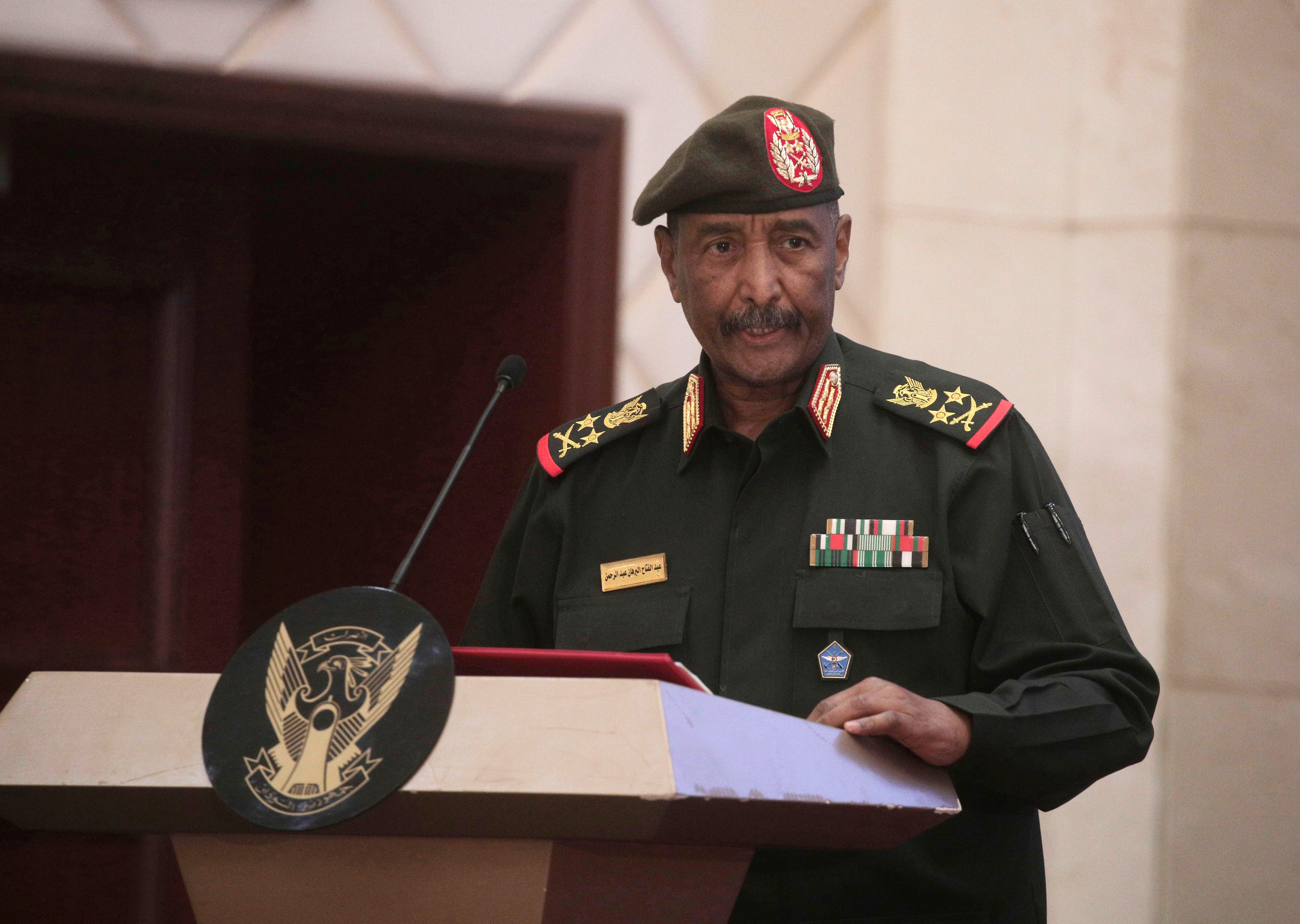Sudan's army chief warns that the country will be fragmented if the deadly conflict is not resolved
The head of Sudan’s army warned that the northeast African country will be divided if its deadly conflict between the military and rival paramilitary force is not resolved

Your support helps us to tell the story
From reproductive rights to climate change to Big Tech, The Independent is on the ground when the story is developing. Whether it's investigating the financials of Elon Musk's pro-Trump PAC or producing our latest documentary, 'The A Word', which shines a light on the American women fighting for reproductive rights, we know how important it is to parse out the facts from the messaging.
At such a critical moment in US history, we need reporters on the ground. Your donation allows us to keep sending journalists to speak to both sides of the story.
The Independent is trusted by Americans across the entire political spectrum. And unlike many other quality news outlets, we choose not to lock Americans out of our reporting and analysis with paywalls. We believe quality journalism should be available to everyone, paid for by those who can afford it.
Your support makes all the difference.The head of Sudan’s army warned Thursday that the northeast African country will be divided if the conflict between the military and rival paramilitary force is not resolved.
Sudan was plunged into chaos after monthslong tensions between the military, led by Gen. Abdel Fattah Burhan, and the Rapid Support Forces, commanded by Mohamed Hamdan Dagalo, exploded into open fighting on April 15.
“We are facing a war, and if it is not resolved quickly Sudan will be fragmented,” Burhan said in a speech addressed to the country's police force in the Red Sea city of Port Sudan.
Burhan’s remarks echo those he made in Egypt on Tuesday, the general's first trip abroad since the conflict broke out. During the visit, Burhan met with Egyptian President Abdel Fattah el-Sissi and discussed ways to end the fighting. But neither gave any details about any potential initiatives or terms.
However, during a separate speech on Monday, Burhan ruled out any reconciliation with the RSF, vowing that his forces will defeat the paramilitary.
According to Kholood Khair, the founder and director of Confluence Advisory, a think tank specializing in Sudanese affairs and politics, the general is trying to pander to different camps.
There is “the domestic audience plus Egypt who want to hear that he and SAF (Sudanese armed Forces) are equal to the task of beating the RSF, and the western international community plus Saudi Arabia who want to hear that a ceasefire might be imminent,” Khair said.
The nearly five-month conflict has reduced the capital, Khartoum, to an urban battlefield, with neither side managing to gain control of the city. In the western Darfur region -- the scene of genocidal campaign in the early 2000s -- the conflict has morphed into ethnic violence, with the RSF and allied Arab militias attacking ethnic African groups, according to rights groups and the United Nations.
Egypt has longstanding ties with the Sudanese army and its top generals. Last month, el-Sissi hosted a meeting of Sudan’s neighbors and announced a broad plan for a cease-fire. All previous cease-fires brokered by the United States and Saudi Arabia foundered.
Last week Burhan managed to leave Sudan’s besieged military headquarters in Khartoum, where he has purportedly been stationed since April. He later traveled to Port Sudan, which is controlled by the army.
The fighting is estimated to have killed at least 4,000 people, according to the U.N. human rights office, though activists and doctors on the ground say the toll is likely far higher.
More than 4.6 million people have been displaced, according to the U.N. migration agency. Those include over 3.6 million who fled to safer areas inside Sudan and more than 1 million others who crossed into neighboring countries.